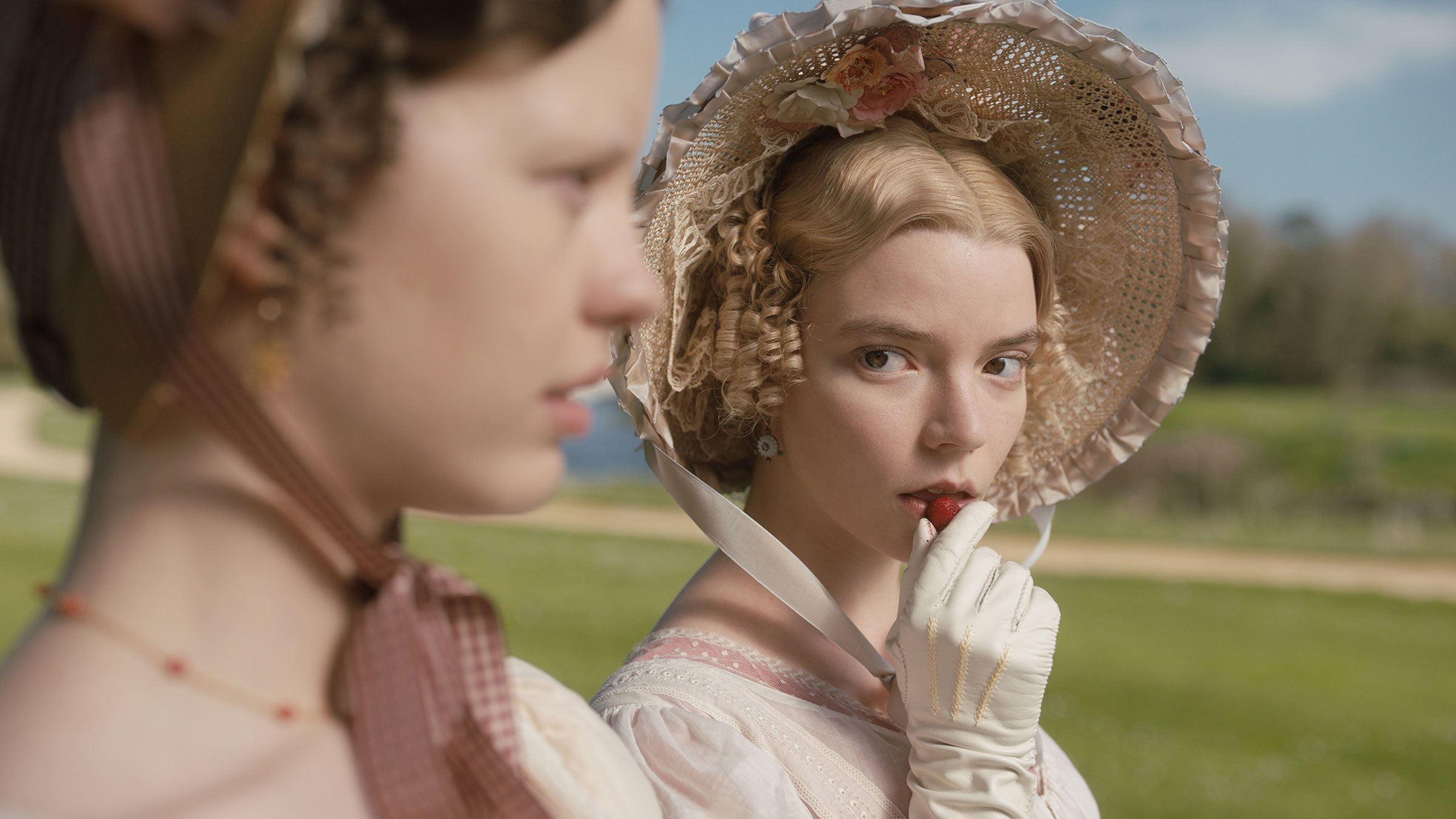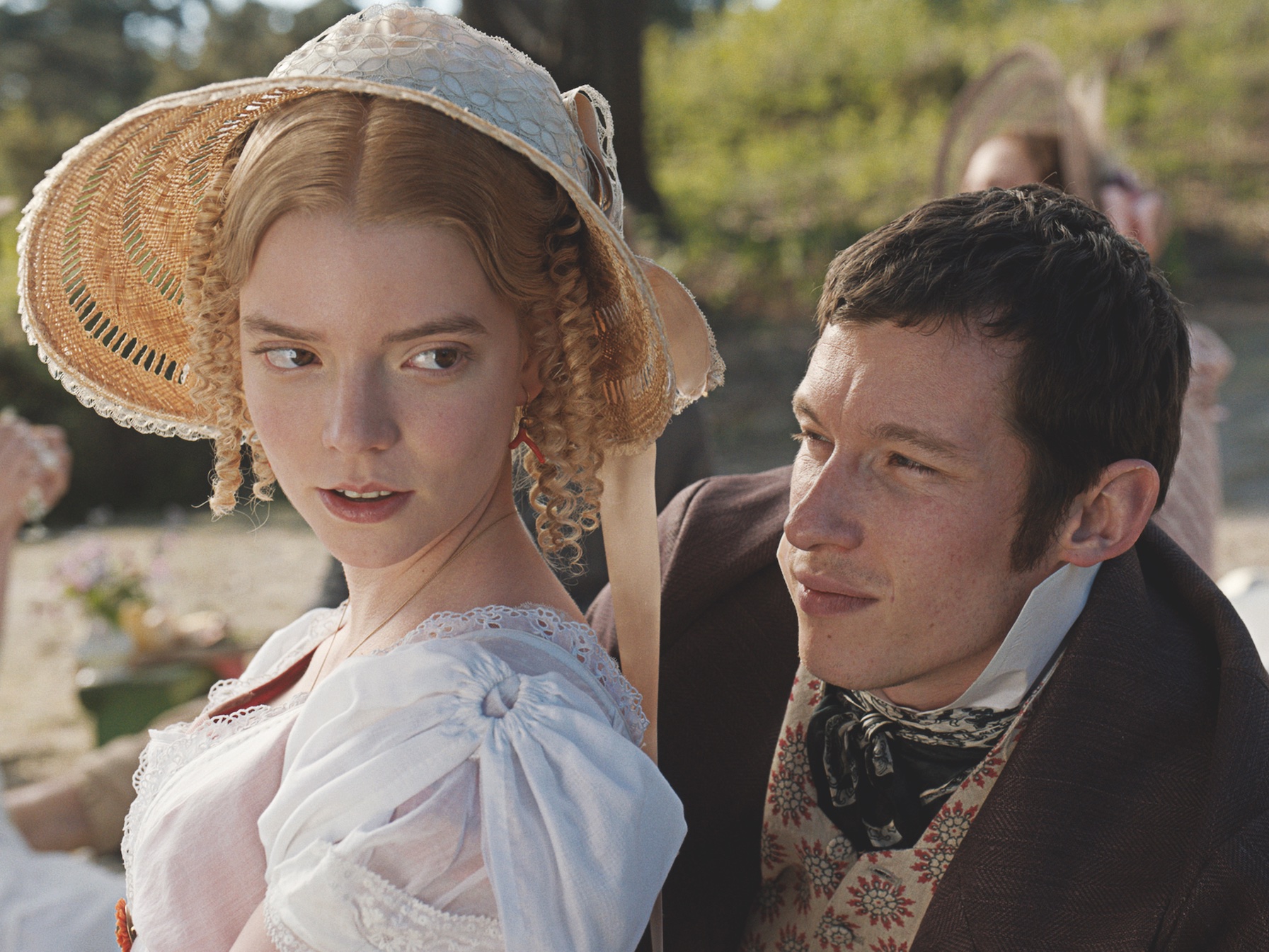Jane Austen’s ‘Emma.’ comes to the big screen again
With a deliberate period at the end of the title, this cleverly indicates that it is indeed a ‘period’ film. “Emma.” is not unlike a delicious, sugary confection — it looks bright and inviting, tastes perfectly sweet and appetizing, and will leave you feeling giddy.
21-year-old high-class girl, Emma Woodhouse — played by Anya Taylor-Joy — is rich, intelligent and spoiled. She likens herself to be a matchmaker and attempts to join her friend Harriet — played by Mia Goth — with the local vicar Mr. Elton, played by Josh O’Connor. However, Emma’s brother-in-law Mr. Knightly, played by Johnny Flynn, expresses his disdain for her manipulative ways, and when pretty boy Mr. Churchill — played by Callum Turner — comes to visit, Emma soon finds herself entangled in a love triangle that even she can’t matchmake herself out of.
Austen’s original novel was published in 1815, yet has not been as popular of a source for adaptation as her other works “Pride and Prejudice” and “Sense and Sensibility.” That gives this new adaptation a sense of freshness, as there are few previous cinematic versions to compare it to.
At its core, “Emma.” is a love story, but takes the perspective of a young upper-class woman with vain tendencies and an inflated sense of the world. Emma believes herself to be a second-to-none judge of character, and this characteristic is shown to backfire on her numerous times in spectacular fashion. Such a person could have been an unbearable protagonist but, given characteristics that make her appealing, it is understandable to the audience that she could become so well regarded by the town.
Taylor-Joy takes full command of a lead role that could have been not-so-sympathetic in lesser hands. She is from the outset described as handsome, rich and clever, and embodies each of these descriptors well, yet her self-centered nature gives the character room to grow. Half of the time it’s apparent she’s acting a tad unnaturally, but it’s by design. She’s playing a part in her everyday life as she practically manipulates everyone around her.
Bill Nighy is a scene-stealing piece of comic relief, never factoring importantly into the plot but always around to provide a hearty laugh or two with his quips and facial expressions. The cast is a superb ensemble of solid character actors, with each providing a small yet memorable turn. Miranda Hart is a particular highlight as well, playing as the hilariously dull Miss Bates, who unexpectedly factors into Emma’s eventual arc in a heartbreaking way.
The film is the directorial debut of Autumn de Wilde, who until this feature was strictly a commercial photographer. She’s not a seasoned filmmaker and it shows in the finished product for better and for worse. The opening introduces many characters at the same time which makes it difficult to initially keep track, and there are some mild pacing issues that make the film feel slightly lengthy for such a light plot. Yet, she clearly knows how to compose a shot and must have had some hand in the costume and production design since the visuals are stuffed with sumptuous pastel colors and decadent decorations.
The visuals are stunning. The impressive cinematography, production design, costuming and color choices all blend together to create the welcoming and inviting tone of the environment. Paired with the excessive symmetry to the images, it’s partly reminiscent of Wes Anderson’s idiosyncratic style. The symmetry in the shots implies the strict social order of the day, and the slightest thing out of place becomes that much more noticeable. This also works with the lighthearted comedic tone of the movie and the silliness of all the characters jockeying for marriage slots all over town.
Occasionally popping up on the soundtrack are gorgeous vocal choral pieces that do well to put the audience into the early 1800’s English environment the movie is set in. They lift up your heart, but simultaneously have a tinge of sadness in them, hinting at the heartbreak that is bound to come.
If you and your significant other are looking for a perfect film for the season of love, I can’t recommend “Emma.” enough. It’s an uplifting look at love, even with an antiquated setting for the story. Austen’s tale is ultimately timeless in its themes and romantic qualities, and with visuals dominated by warm colors like yellows, light greens, light blues, and pinks, it’s like a professionally wrapped gift just for the season of affection.
Star Rating: Three and a half stars
Good:
- Acting is solid across the board.
- The music is beautiful.
- A visual delight.
Bad:
- Too long for a light story.
- Introductory act introduces many characters too quickly.
- Slight pacing issues.

PHOTO COURTESY OF FOCUS FEATURES


